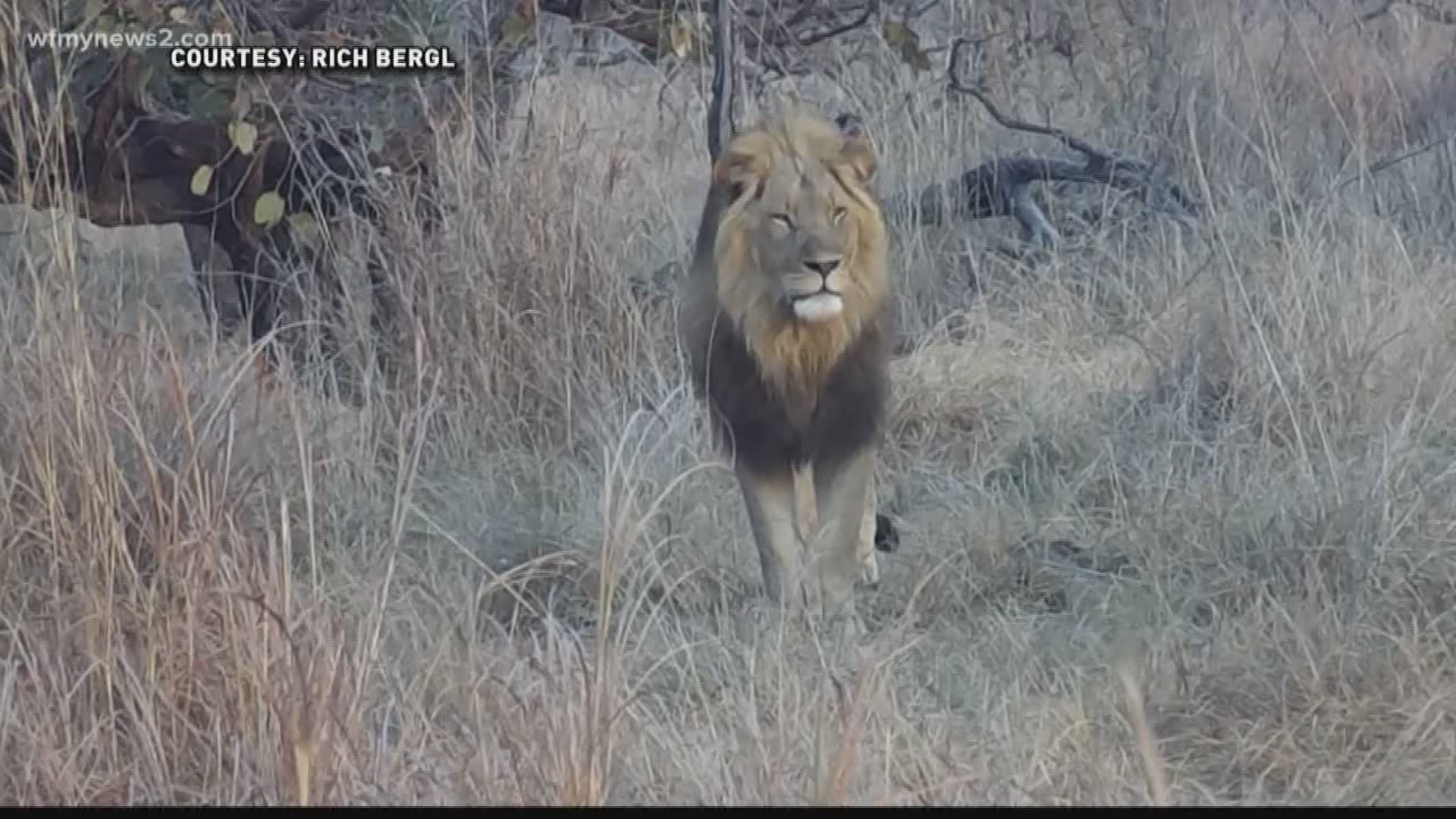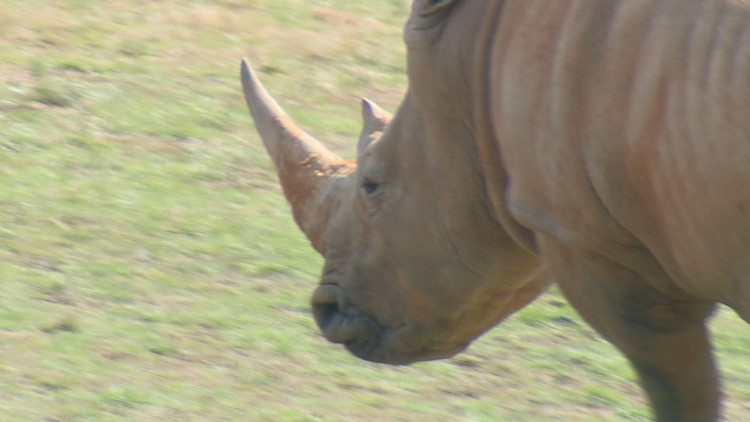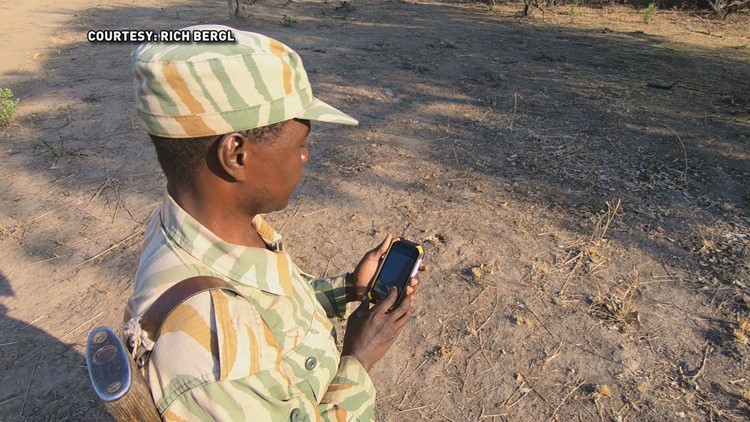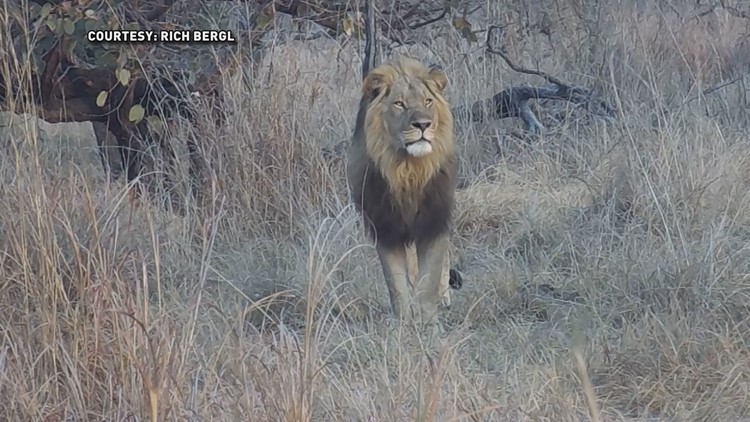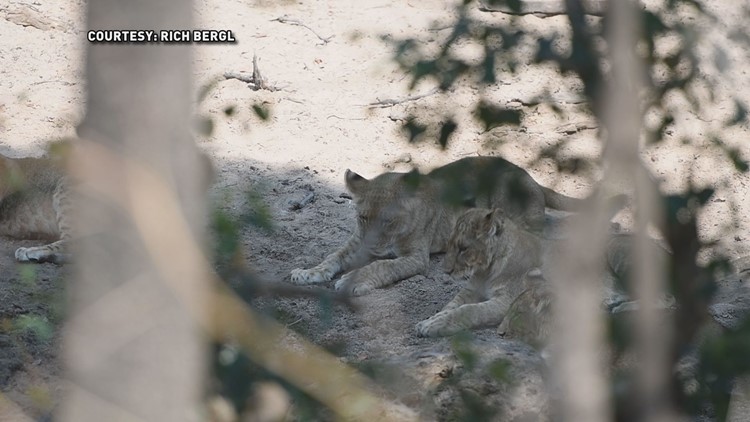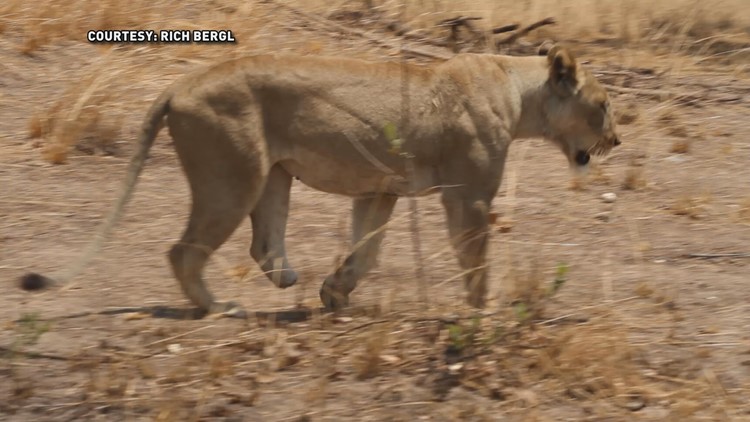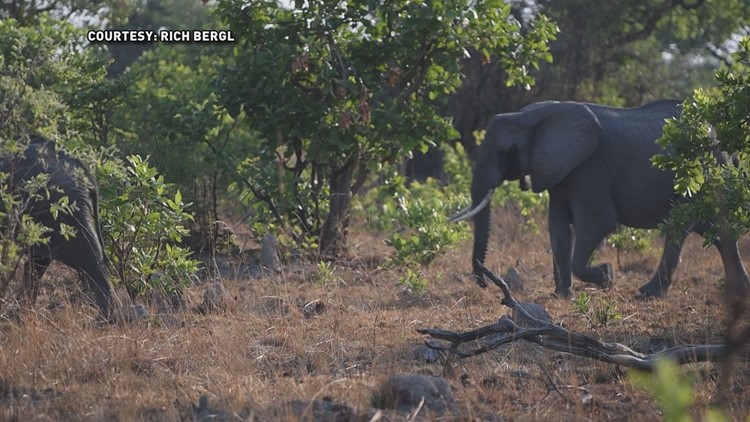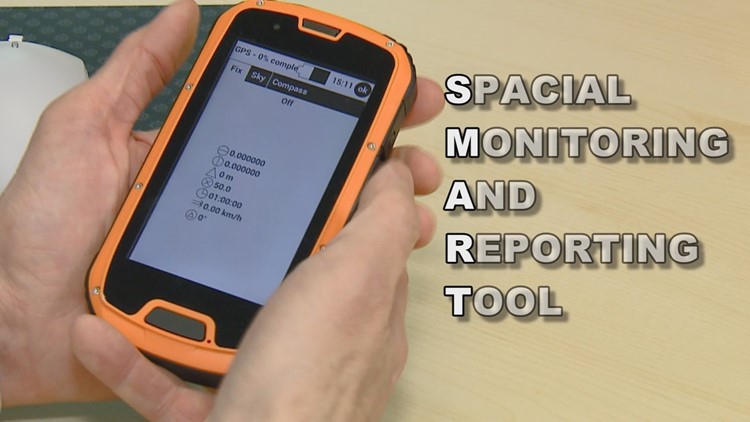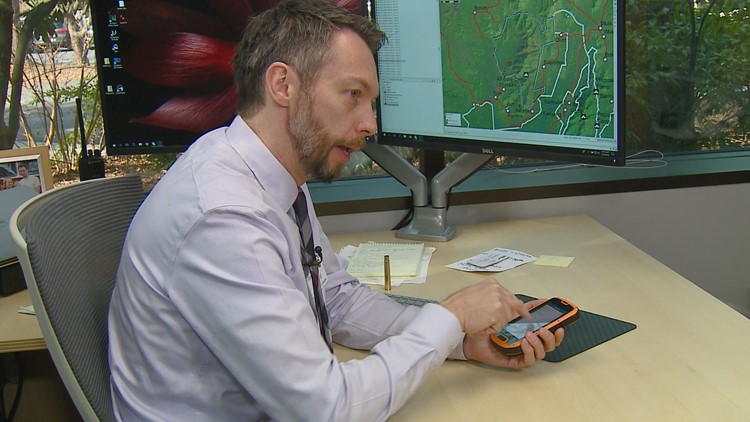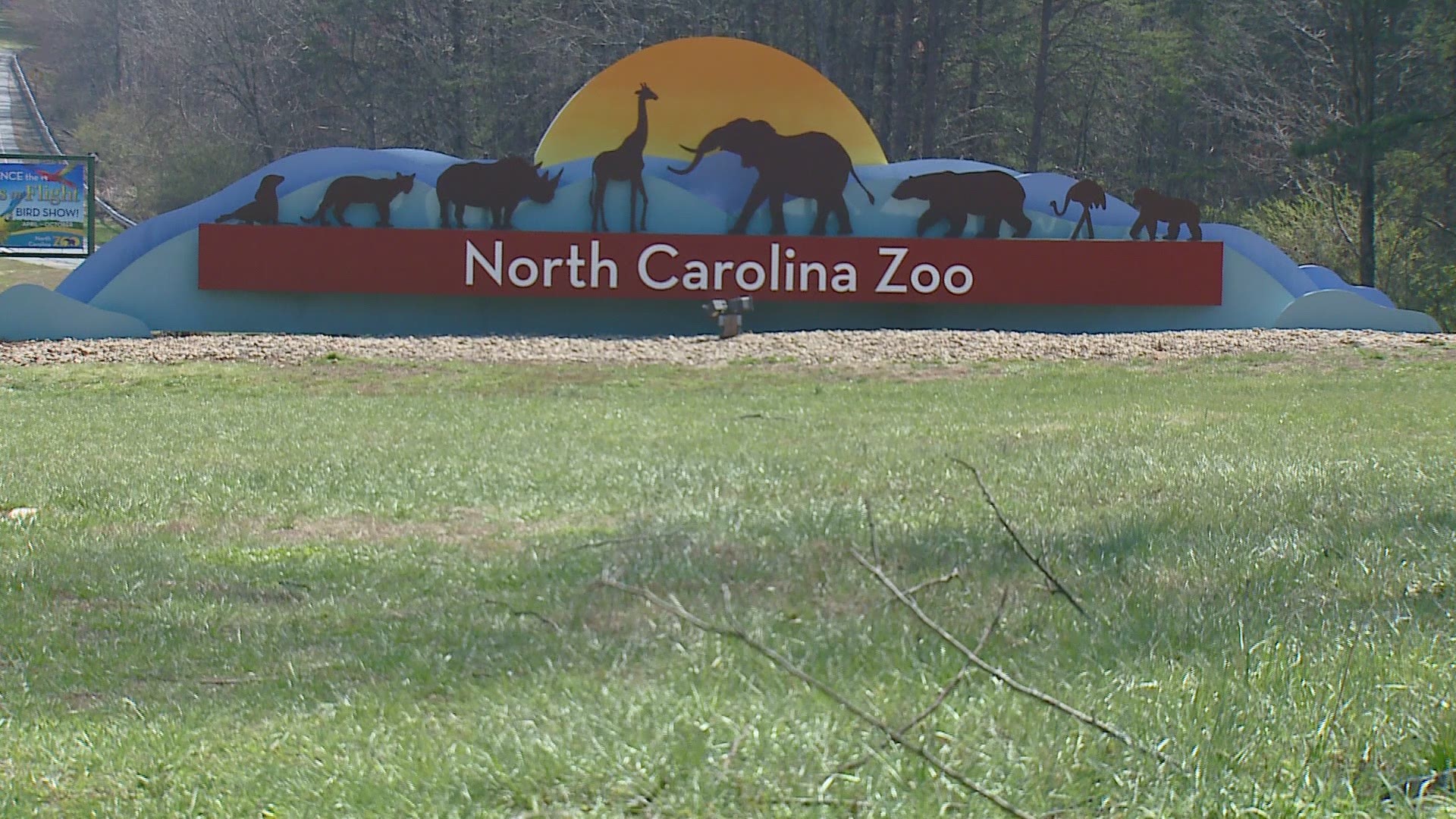ASHEBORO, NC -- The key to saving the world's most threatened animals from extinction might lie in the hands of the North Carolina Zoo employee who co-invented it.
It really is remarkable, the little North Carolina Zoo in Asheboro in Central North Carolina is working with these globally-important organizations and having an impact...around the world," said NC Zoo director of conservation education and science, Rich Bergl.
NC Zoo 'Smart' Device Tries to Prevent Poaching
Bergl doesn't consider himself the next Thomas Edison. He's just a guy who loves animals, Africa and adventure.
"I graduated and had no idea what you do with a degree in anthropology."
Yet, Bergl might have invented a tool as profound as the light bulb -- a device that uses modern day technology to solve an almost pre-historic problem.
"You can see it doesn't look quite as sleek and sophisticated as a new iPhone, but that's because it's designed to be [very durable.] It's water proof, it's shock proof," Bergl demonstrated.
And, it's poacher proof. The device is called the Spatial Monitoring and Reporting Tool, nicknamed by its acronym SMART. He worked with the Bronx Zoo and worldwide wildlife groups to develop it in 2011. Since then, it is in more than 55 countries where poachers have forced the best-known but most threatened species to the brink of extinction.
For example, the Great Elephant Census estimated 10 million elephants in the early 20th century. Then, the ivory trade got popular. So, in 2016, only 352,000 elephants remained. By the year 2025, possibly half that number could exist, unless something is done.
Bergl thinks that solution is SMART. It operates as a very simple smart phone -- it lets the user log observations, like animal sightings, behavioral changes in the herd and evidence of illegal activity.

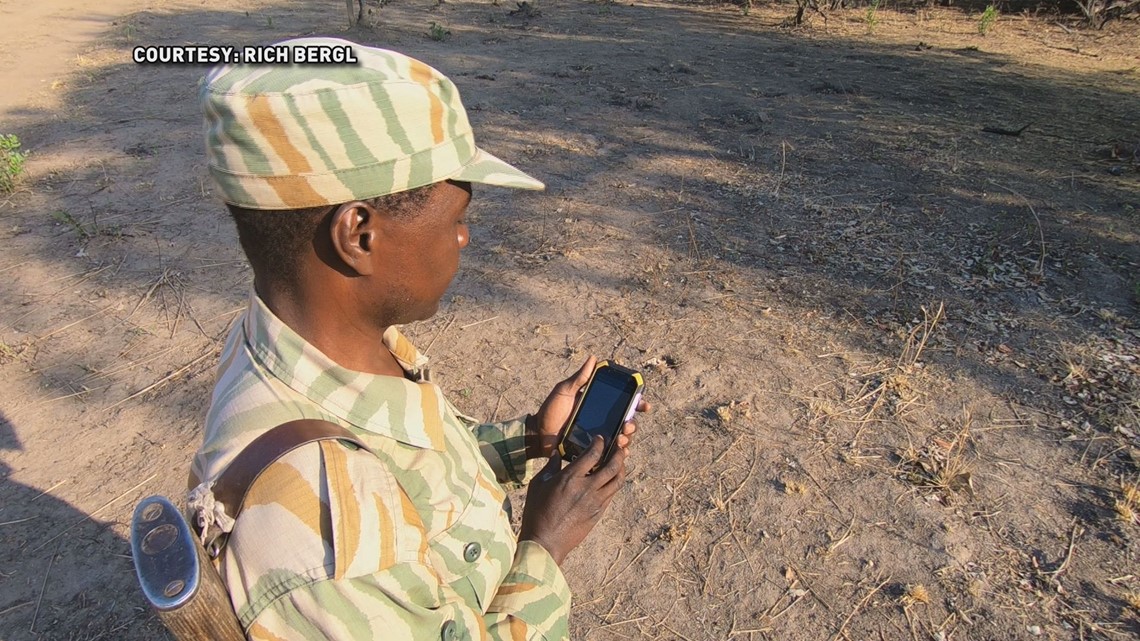
"If a ranger sees something that is critically important, that information gets entered, sent to the cloud and sent out to the base camp so they can respond appropriately."
Essentially, so they can stop the killing. Bergl and his colleagues regularly travel to African wildlife reserves. They teach park rangers in some of the most remote countries how to use SMART -- for example, how to document a female lion they saw bleeding after stepping in a poacher's trap.

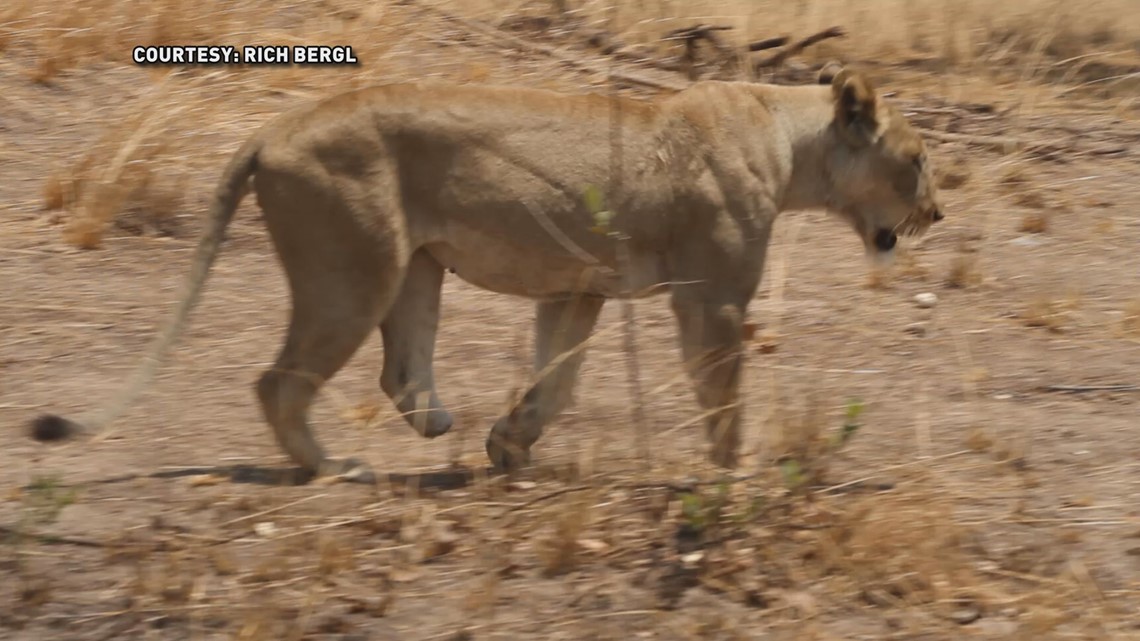
"SMART just makes things easier. It makes collection of data easier, storage of data easier. It allows us to focus on the things that really matter, in terms of evaluating what the information is telling us," said Kim Young, director of the Panthera cheetah program at Etosha National Park in Namibia.
Back at the North Carolina Zoo, Bergl said he likes to think of the rhinos as "ambassadors for their wild cousins."
Three species of those wild cousins are dwindling. There are only two northern white rhinos left on the planet, and both are female.
"At the moment, rhino horn on the black market can fetch more than gold per unit weight," Bergl explained.
Even the gorillas are critically endangered, with poachers selling their meat and destroying their habitats for products like palm oil. The African Wildlife Organization reports the infants can sell for up to $40,000 on the black market to be used for pets or animals in illegal zoos."
Yet, thanks to SMART, the majority of Africa's endangered species seem to be rebounding. The 2017 SMART report shows there are now seven times more elephants in areas patrolled by SMART than on land that is not.
"We've been able to document...significant decreases in threats -- the number of snares, the number of gunshots detected."
Bergl seeks neither fame nor fortune for his small but mighty invention. SMART is free and doesn't even have a patent.
By visiting the NC Zoo and supporting the Zoo, you're helping our initiatives and stopping the animals in the wild from going extinct."
Bergl just returned from another trip to Africa, this time to Namibia. He said SMART continues to expand its reach, and the African reserves now patrolled by SMART equal the size of South Carolina.

